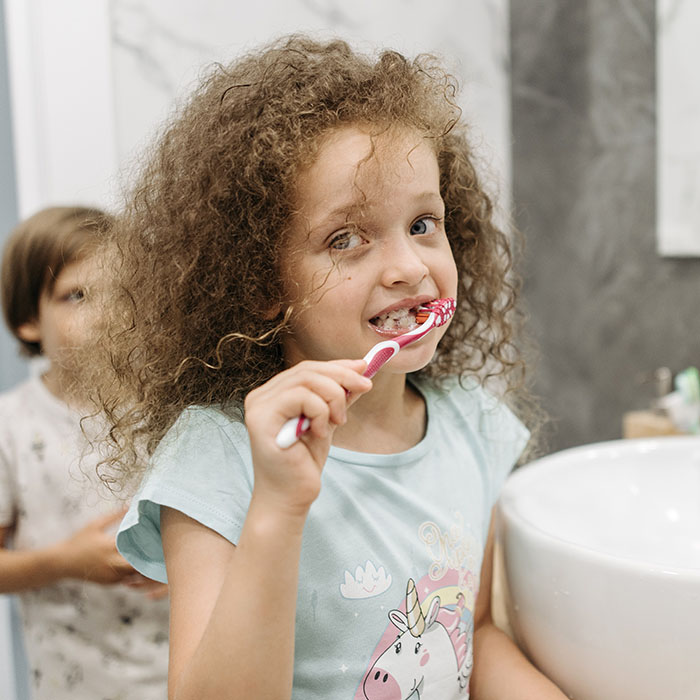HERE’S A HANDY GUIDE that can help parents navigate the toothbrush aisle the next time they need to replace a child’s toothbrush (which should be every few months — certainly by the time the bristles look bent). Start out by choosing from toothbrushes with the ADA’s Seal of Acceptance.
Manual or Electric Toothbrush?
Next, electric or manual? While both types of toothbrushes have the same capacity to clean teeth, electric toothbrushes might be a better choice for some kids. A child with a tendency to brush too hard, who has limited dexterity, who needs help getting to their molars, or who has special needs and difficulties may do better with an electric toothbrush, but one who is great at brushing is just fine with a manual brush.
Soft Bristles Are Better
What about bristle hardness? We recommend soft-bristled brushes to our patients, especially for young children. Soft bristles are gentle on gums but still effective against plaque and food debris.
One Size Does NOT Fit All
Size is also important. A child’s toothbrush should fit their hand and mouth, or they won’t be able to use it effectively. A non-slip grip might also be a good idea if they have a tendency to drop their toothbrush.
Their Favorite Toothbrush Is the One They Choose
We are happy to give specific toothbrush recommendations. A child can also pick their favorite from a selection that meets the other requirements. They’re more likely to enjoy brushing with a toothbrush that’s their favorite color or has their favorite character on the handle. In the end, the best toothbrush is the one they use!
(The content on this blog is not intended to be a substitute for professional medical advice, diagnosis, or treatment. Always seek the advice of qualified health providers with questions you may have regarding medical conditions).





